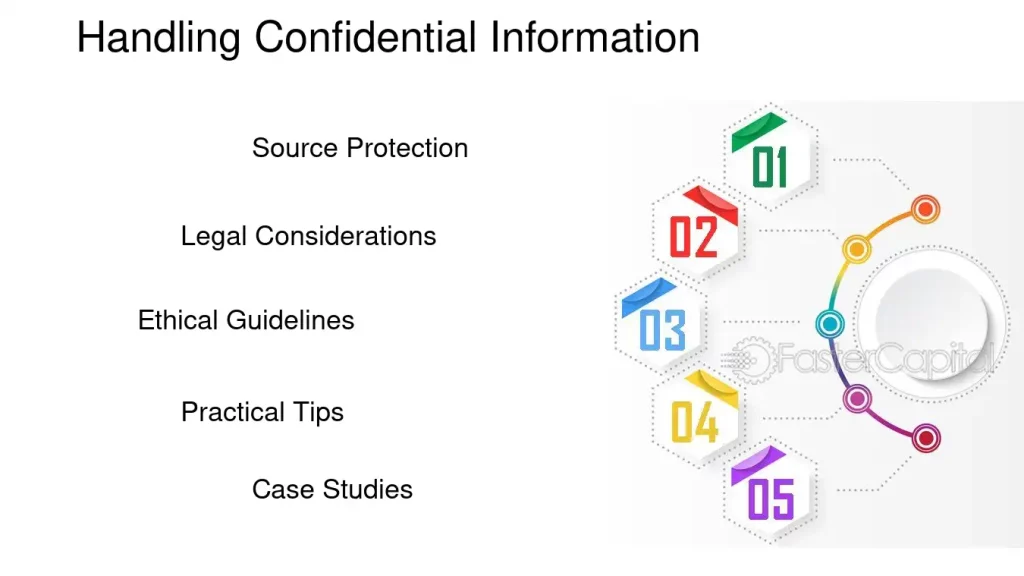Building Trust in News: Exploring the 5 Core Ethics of Journalism
In this era of constant news updates and information overload, reinforcing the core ethics of journalism is more important than ever. Ethics and moral guidelines are the backbone of reporting. You might get your news on TV, from newspapers, or through quick-access apps on your smartphones – the fairness, accuracy, and humanity with which it is presented remain constant.
News educates people to make informed choices. The media, as the fourth pillar of democracy, plays a major role in shaping society, shattering prejudices, emphasizing impartiality, and underlining the importance of accountability.
While challenges like fake news, biases, unequal representation, and declining trust in mainstream media continue to exist, younger audiences are looking for outlets that focus on journalistic ethics and contribute to the rise of a new, independent media.
Read on to explore the core ethics of journalism and how they uphold the revered institution of news & media.
What Does Journalistic Ethics Mean?
Do you want free career counseling?
Ignite Your Ambitions- Seize the Opportunity for a Free Career Counseling Session.
- 30+ Years in Education
- 250+ Faculties
- 30K+ Alumni Network
- 10th in World Ranking
- 1000+ Celebrity
- 120+ Countries Students Enrolled
Imagine writing a report on what happened at school in a week. Now, you could present the facts and write about the events you spotted and activities you participated in, or you could spice up the events to make them intriguing and get more people to read them. So, what would be the right thing to do?
Journalists often face the same question. Except, they report on incidents on a much bigger scale. Ethics are the moral guidelines that help them make the right decision in this dilemma, report truthfully, accurately mention what happened, consider the feelings and situations of those involved, and be fair and free of bias.
Read Also: Impact of Technology on the Media and Journalism Industry
Book Now →
What are the 5 Core Ethics of Journalism?
Ethics act as a professional guideline and a moral compass for journalists so they can continue to provide truthful information and create awareness about crucial issues. These ensure that the news that reaches the public is credible, unbiased, and in the best interest of society.
In a vast country like India, journalists, reporters, and other media professionals follow certain ethical reporting standards and codes of conduct. We have listed the principles of ethical journalism that are integral to news collecting and publishing –
Accuracy
A key principle of ethical journalism, delivering accurate information – based on evidence and available data – is what makes news credible and trustworthy. Using reliable sources like government reports, statistics published by concerned authorities, and archival data is integral to maintaining accuracy. Thorough fact-checking and verification help avoid misreporting and factual errors.
Do you want free career counseling?
Ignite Your Ambitions- Seize the Opportunity for a Free Career Counseling Session.Fairness & Impartiality
Journalists are required to report without biases and presumptions. Presenting all sides when necessary and reporting balanced news with reasonable context are essential in impartial reporting. Giving respondents a fair chance to present their perspectives, and avoiding situations where a conflict of interest may arise make news more just and fair too.
Read Also: Find Your Voice: Become a Radio Jockey with Our RJ Course
Cultural Sensitivity
Multi-cultural, secular, and geographically varied countries like ours often require journalists to be more considerate towards the coexisting cultures, understand cultural nuances, and respect their boundaries. As a journalist or a media professional, you will have to be prompt about any necessary research to avoid reinforcing stereotypes and cultural appropriation.
Using culturally sensitive language, checking in with an expert, and being respectable while reporting are some of the ways cultural sensitivity can be implemented.
Humanity
Be honest, but get rid of the brutal! A lot of the time, news reports deal with complex situations. Understanding the gravity of the incident being reported and showing compassion and empathy toward the respondents are key to humane reporting.
Showing humanity in your journalistic work includes writing in an inclusive language, avoiding unnecessarily gory details and sensationalizing a piece of news, and adding trigger warnings as a means for people to make an informed choice about watching/reading a news report.
Privacy
Ethical journalism highlights the need to understand and respect the privacy of the interviewees, maintain the anonymity of the respondents in sensitive news reports, and protect the identity of the people being spoken to while collecting news. Taking consent before publishing a respondent’s statement, name and details, and photograph is integral to maintaining privacy and following the ethics of journalism.
Accountability
Journalists and news agencies are responsible for the news pieces they publish. Accountability involves being transparent about the sources, informing the readers/viewers in case there’s a need to maintain anonymity, fact-checking before publishing a news report, and updating any information that is found wrong after being published.

Read Also: How Does Digital Journalism Impact the Modern World?
Challenges in Ethical Reporting
While ethics is the cornerstone of journalism, professionals and news outlets have many hurdles they need to overcome. From keeping up with the demand for fast news delivery to countering fake news, deepfakes, and misinformation, journalists work round the clock to face the challenges in ethical reporting –
- Fake News – Journalists have to navigate the constant flow of rumors and misinformation with limited time and resources to deliver accurate, truthful information.
- Engagement vs Accuracy – When almost half the population gets their news from social media platforms, the news outlets have to keep up with the algorithm and fast pace to publish news on time. Since engagement on these platforms has monetary value, it becomes difficult for journalists to report detailed, accurate stories within tight deadlines.
- Sensationalization – Sensationalization prioritizes views and engagement over ethical journalism. It resorts to catchy, click-bait headlines, often sidelining sensitivity and compassion. It hampers the credibility of the news and the outlet reporting it, affecting the public trust and putting the reputation of the institution in jeopardy.
Read Also: News Anchor vs. News Reporter: Key Differences and Similarities
Why is Ethical Journalism important?
The role of ethics in journalism is undeniable and integral. It sets a moral guideline and fosters trust amongst citizens. Here are some of the most important reasons why ethics and news reporting are practically inseparable –
- Makes media reliable – Maintaining transparency & citing reliable resources, publishing ethically sourced & unbiased news, and fact-checking are important to make reports accurate and foster public trust in news.
- Empowers citizens to make informed choices – Correct information and fair & just reports provide citizens with the right tools to make informed decisions.
- Counters misinformation – Focus on accuracy, thorough fact-checking, and accountability are great tools to counter misinformation and fake news and maintain the credibility of news channels and media.
- Minimizes harm – Empathy, compassion, and sensitivity while reporting complex, triggering, and sensitive news can soften the blow, making people intellectualize the situation rather than emotionally react to sensationalized headlines.
- Promotes professional responsibility – Emphasizing cultural sensitivity, embracing diverse perspectives inside newsrooms, and accountability promotes responsibility and makes the media houses a collaborative place for people from different socio-cultural backgrounds.
Read Also: The Role of Media in Crisis and Disaster Management
Conclusion
Amidst reducing trust in mainstream media across the world, major global newspapers coming under scrutiny for biased reports on geopolitics, and sensationalization of news, it is all the more important to emphasize the core ethics of journalism.
Being truthful, fair, and unbiased in reporting, prioritizing privacy, humanity, and cultural sensitivity, and taking accountability are the major principles of ethical journalism.
If you are an aspiring journalist, your training programs and courses will introduce you to the moral guidelines you’ll need to follow in the profession and empower you with the right tools for you to take the correct road.
Check out the BJMC courses and diplomas in journalism offered by AAFT Noida to explore the discipline and smoothly transition into the professional realm.

AAFT has been providing the world with limitless creativity and expression since 1993! Through a dynamic and industry-driven curriculum, AAFT provides engaging and captivating articles to persuasive blogs and empowers its readers to explore diverse avenues of creative media education-related content.






